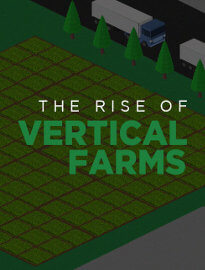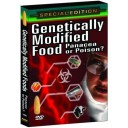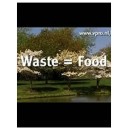Organic Food: Hype or Hope?
The organic food craze has infiltrated grocery store aisles and the dinner tables of conscientious eaters, but is it really all it's cracked up to be? As its popularity grows, critics are questioning whether we can trust this bio-friendly brand of food farming. Organic Food: Hype or Hope? examines an industry whose future could be tainted by fraudulent labeling and lackluster accountability measures.
Consumers who choose to buy organic must pay a higher premium price. Many of them are willing to do so, because they're sold on the promise of a more natural product free from artificial ingredients, harmful additives or toxic pesticides. The information contained in the film might prove distressing for these organic enthusiasts.
There is currently no test that can accurately distinguish between organic foods and others which were grown through conventional farming techniques. As a result, there is no guarantee that the organic products in your local grocery store live up to the lofty claims on their labels. Can we trust that these foods are sufficiently devoid of contaminants?
Pesticides decompose slowly, and their traces can linger in soil and groundwater for years. Recent studies of organic products, such as those featured in the film, showed an alarming degree of pesticide contamination. In one instance, an organic fennel farmer in Germany is shocked to learn his product contains unacceptable trace levels of pesticide. His fennel is used in the production of baby food.
One of the film's central concerns involves the notion of sustainability. Consumers aren't the only ones feeling the financial squeeze of going organic; bio farming companies must undertake more cautious and costly measures as well. As they struggle to meet increasing consumer demand while adhering to strict regulations, the industry is searching for more efficient and cost-effective ways of doing business.
In theory, the film finds great benefit in the production and consumption of organic food. The switch to organic can curb environmental pollution, the frequency of common health concerns and the rampant abuse and neglect of animals. Organic Food: Hype or Hope? spotlights a series of concerns that could derail the integrity of the movement before it becomes the norm.
Directed by: Torsten Mehltretter




I can accurately distinguish between organic and conventionally grown food by the taste!
Implementing permaculture is essential to our survival, to the permanence of our culture!
Paying more for organic food is voting with my consumer dollar, and I'd rather pay the organic farmer than a health insurance company!
Monsanto was always very criticized and with reason, but now was bought by Bayer, will the winds change ? Maybe not.
In the permaculture movement, it has been proven that healthy food starts with healthy, rich topsoil. That requires unique management of rudiments on pasture, coupled with other animals. In the end, it all makes sense, e.g., plowing was a big mistake because it disturbs the microenvironment. When doing anything not seen in nature, great care must be taken to upset the balance in nature.
With modern chemical analytical equipment, you can find anything everywhere and the real question is the concentration. Remember every breath you take contains molecules from the last breath of the first human.
Without numbers and concentrations, the whole documentary is a visually emotionally experience with no indication of truth or validity.
One can feel the greatly improved difference from consuming an organic diet. There are other significantly healthy advantages other than avoiding the deadly pesticides being force-marketed by industrial chemical corporations such as Monsanto, which is probably a sponsor of this video. But their poisoning of the public with toxic pesticides as well as GMO products are a priority.
?Excellant ?